Things were going so well here at Abraham’s Wallet… [I’m fixed in a distant gaze.]
I thought it would work. It SEEMED like it would work…
[I pick up a dandelion. I blow half of the seed-parachutes away… then give up and drop it.]
You see friends… over the last few years, we’ve built a fairly loyal following over at the podcast, we’ve hosted multiple celebrities, and we’ve even provided the average family-builder with tips on how to stick it to the man at tax time (hey IRS, that was just a joke. A sad, misplaced joke. And I’m sorry).
[I sit in a mud puddle and don’t even care about my new Bonobos stretch faux ripped jeans.]
But despite all that good forward progress, I have to violate one of the Bible followers’ sacred cows.
Gonna turn it into steaks and BBQ the brisket.
Sigh. it’s been a good run. We enjoyed having you around for so long and we hope you’ll look back on these times together with a sort of souring fondness, like you remember 3rd grade t-ball. Remember the good times, won’t you?
Now Dave Ramsey will DEFINITELY never return our calls.
Well SO BE IT SUCKERS. I gotta be me! And here’s the straight doo doo:
You should probably consider having a really big mortgage.
[I’ll wait a moment to let the exits clear.]
Now then: Why would a heretofore smart guy like me suggest such anathema to a bunch of studs who are paying down debt and building family assets?
I’ll tell you why! It’s because I like maths! And I’m about to show you, using those very maths, that in the current lower-than-ever-in-history interest rate environment, you can leverage a fat mortgage to make your family wealthier in the long run.
Seriously. You can. And you’ll feel like a finance tycoon. Cause you’ll be using MARKETS and INTEREST RATES and LEVERAGING DEBT and all those slick-sounding things.
AND, you can do it without the foolish, legacy-endangering shenanigans that led to the financial meltdown of 2008 and many personal bankruptcies. That stuff was slick-sounding… and evil.
Before I argue in favor of a big mortgage (and I am well equipped to do so, I tell you), let me first offer a caveat:
You should NEVER buy a house you cannot afford.
I’ve mentioned before ‘round here that I once purchased a very expensive home because I believed it would double in value very soon (it did). I made that choice because I had a really good backstop for that risk: even if the house dropped in value a lot, I had the coin to bail out if needed. That’s very different from the folks who bought homes during the last housing bubble, on the assumption that they would have a hard time affording those houses, but prices were going up so fast that, “Hey, if it gets too hot in here, we can always sell this Vegas condo for a profit, right?”
Not right. If you need help understanding what you can afford, try using our handy financial ratios. See? Ratios = maths. Solid.
So from here on out I’m assuming that we’re talking about a house you CAN IN FACT afford (this means you’re not spending 50% of your pre-tax income in order to make the mortgage). Whether you’re purchasing that affordable home or have lived there for a while, most of you readers have financed this asset with a mortgage. If you’d like a primer on all things mortgage financing, then we have what you’d like right ‘chere. (It’s called ARCHIVES, yo.)
Given the low rates on offer today, I’m often asked, “Mark, the lowest rates I can find are on a 15 year loan – it looks like I can afford that monthly payment and be done with paying down my house in half the time I was expecting!”
What a bunch of askers. These askers, I think, expect a pat on the back – maybe even an attaboy. But here at Abraham’s Wallet we don’t just give out attaboys because you had a Notion. Attaboys, like many things, have been subject to very high inflation lately and we’re not trying to add to that problem. Askers, take a sit down.
No, lately I’ve generally responded with something like, “yes, you could lock in a 15-year mortgage, but if you’re really trying to optimize your long term wealth, a 30-year mortgage is probably the ticket.” Here’s how that works: imagine you need to borrow $350k to buy a house. Depending on where you live, that either sounds like the nicest home in town or a hilarious joke, but we’re going with a national average so bear with me.
Let’s do some maths.
If you could get a 15-year mortgage with a 2% interest rate on your $350K house, your payment is going to be $2,252 per month (we’re ignoring taxes and insurance for this exercise). After 15 years you will have paid back $350k of principal and an additional $55,410 in interest.
15- year mortgage
350K principal + 55,410 interest = 405,410 total
Buuuut… let’s say you choose a 30 year mortgage with a 3% interest rate. Now your monthly payment is only $1,476, but it’s going to take you 30 years of making those payments to pay back the $350k of principal. By the time THAT loan is all said and done you’ll have paid $181,221 in interest to your lender.
30- year mortgage
350K principal +181,221 interest = 631,221 total
So how could you end up wealthier by choosing the more expensive loan?
Well most Americans won’t end up wealthier by choosing the more expensive loan. Most Americans will go with the cheaper monthly payment and spend the extra money on consumption rather than building family assets. If that’s your temptation, you may be very wise to choose the 15-year loan! To misquote all of the famous greek philosophers, “know thyself”.
Some of you, however, are budgeting ninjas – full of self-discipline with a demonstrated track record of using the right tools to manage your wealth over time, and you’re ready to maximize long term wealth for the sake of your great, great grandchildren. Let me show you how that works by using the “more expensive” loan.
Isn’t this exciting!? Get ready! Maths!
Let’s say you’ve got $2,252 per month available for saving and making your mortgage payment. You can A) put it all into the mortgage, choosing the 15-year loan we described above, or you can B) choose the 30-year and put $1,476 into the payment… and have another $776 left over for investing. Say whhaaaattt??
[We’re going to assume that you don’t have a ton of free time on your hands, so you invest in a pretty standard portfolio of mostly stocks and see a 7% return on that money.]
SO… after 15 years…
The A scenario has you owning your house outright. No mortgage left. So you’re out of debt. Now you can start putting all $2,252 towards investments. 15 years after that, you have an investment account (ignoring taxes) worth about $705k. NOT BAD SON!
So the A (15 year mortgage) scenario ends up with a house paid off and 705K in investment dough. Mmkay. We see you.
In the B scenario, after those same 30 years, your house is paid off, but your investment account, to which you’ve been contributing all along, is worth… $912K!
Methinks your children would be delighted by an extra $200k in the family asset pool, no?
“Wait a second, bucko”, you say, “I’m 45 years old and I don’t want to be still paying for my house when I’m 75! These maths don’t apply to me.”
And yet, you asker, they DO apply to you. Let’s say you absolutely want to make no more mortgage payments after 15 years from today. With the 15 year loan, you’ve hit that nail on the head and you’re done at exactly 15 years. But what if you chose the 30 year loan? After 15 years, you’ll owe $213,677 of the original $350k you borrowed. And your investment account balance that you’ve been saving the extra $776 per month into contains… $242,782! That’s more than $29k extra, son!
Now you have a house and a Ford Explorer! So even if you plan to pay that loan off early, you’ll have more wealth on your hands by investing the extra money where it can grow at a relatively fast rate (7%) even though you’re borrowing at a slightly higher rate of interest (3% instead of 2%).
Some of you are liking what I’m doing up in here. Some of you are still dubious. So let’s deal with a few common concerns:
- Isn’t the Bible pretty anti-debt?
- Yes… but God does not command you to pay off your mortgage quickly (that is probably in one of the “lost books”). He does, though, require that you put thought into how to produce a return on the resources you’ve been entrusted to steward. To wit:
- “Well then, you should have put my money on deposit with the bankers, so that when I returned I would have received it back with interest.” Matthew 25:27
- So, snap.
- Should we all leverage ourselves to the hilt and hope for the best then?
- Ease up. While we are expected to produce returns (and those DO include financial returns) for the Owner of all things, we ARE also warned about debt:
- “The rich rules over the poor, and the borrower is slave of the lender” Proverbs 22:7
- If you take out a loan that you cannot afford to pay back, the lender, in this case, can come take your house. That would certainly affirm this feeling of slavery to the lender – you’ll need to do whatever they say to hang onto that house that you can’t afford. Thankfully in our modern mortgage system there are some very clear rules when it comes to lending. You’re allowed to prepay your mortgage whenever you wish, for example. If you have a pile of $200k that you’ve built up through wise stewardship AND a mortgage for $100k, then you constantly have the choice about whether to continue in that borrower/lender relationship or not. In this case, I’d argue that you’re in a very different position than the borrower searching the couch cushions to come up with this month’s payment.
- So don’t put yourself in the position of the slave, but also don’t be simple when it comes to thinking about how to build wealth.
If you’re thinking about taking on a new mortgage or refinancing your current home, run the numbers for your own situation and at least think about taking the “more expensive” mortgage to see if you end up wealthier in the long run. If you need a good calculator to help you in that effort, you can run the mortgage math here and figure out how your extra dollars would grow here.
Lastly, if your biggest concern is that you were SO looking forward to doing a live, on-air debt-free scream for Mr. Ramsey, I’m extending the offer to anyone whose taxable investment account grows to be larger than their mortgage. Drop us a line and we’ll put your scream out to our (similarly sized, I’m sure) audience.
Maths, people. Maths.
*Mark Parrett is one of the founders of Abraham’s Wallet. When not blogging for you here, he’s raising a family in Salt Lake City, UT and working as a financial planner at Outpost Advisors.






